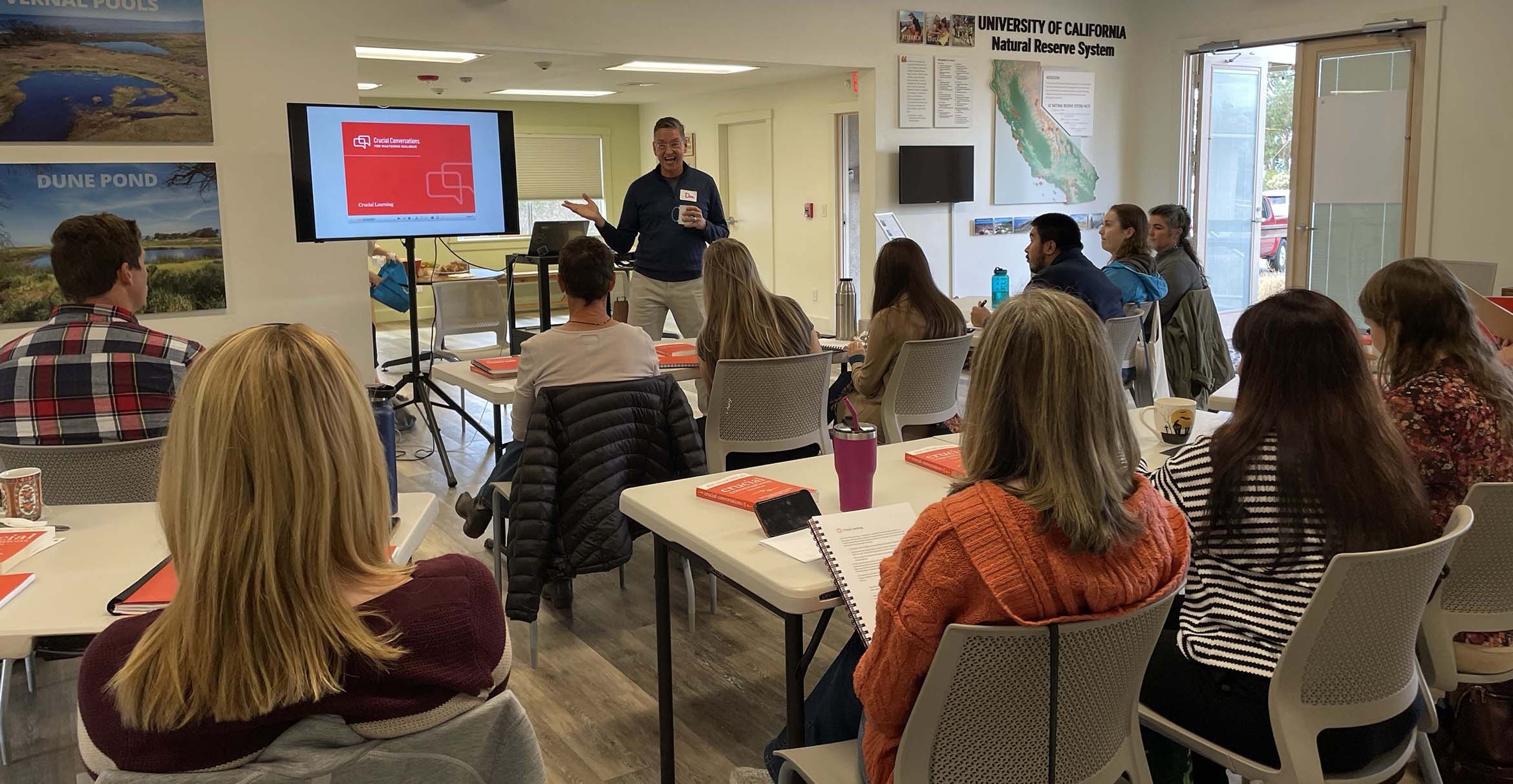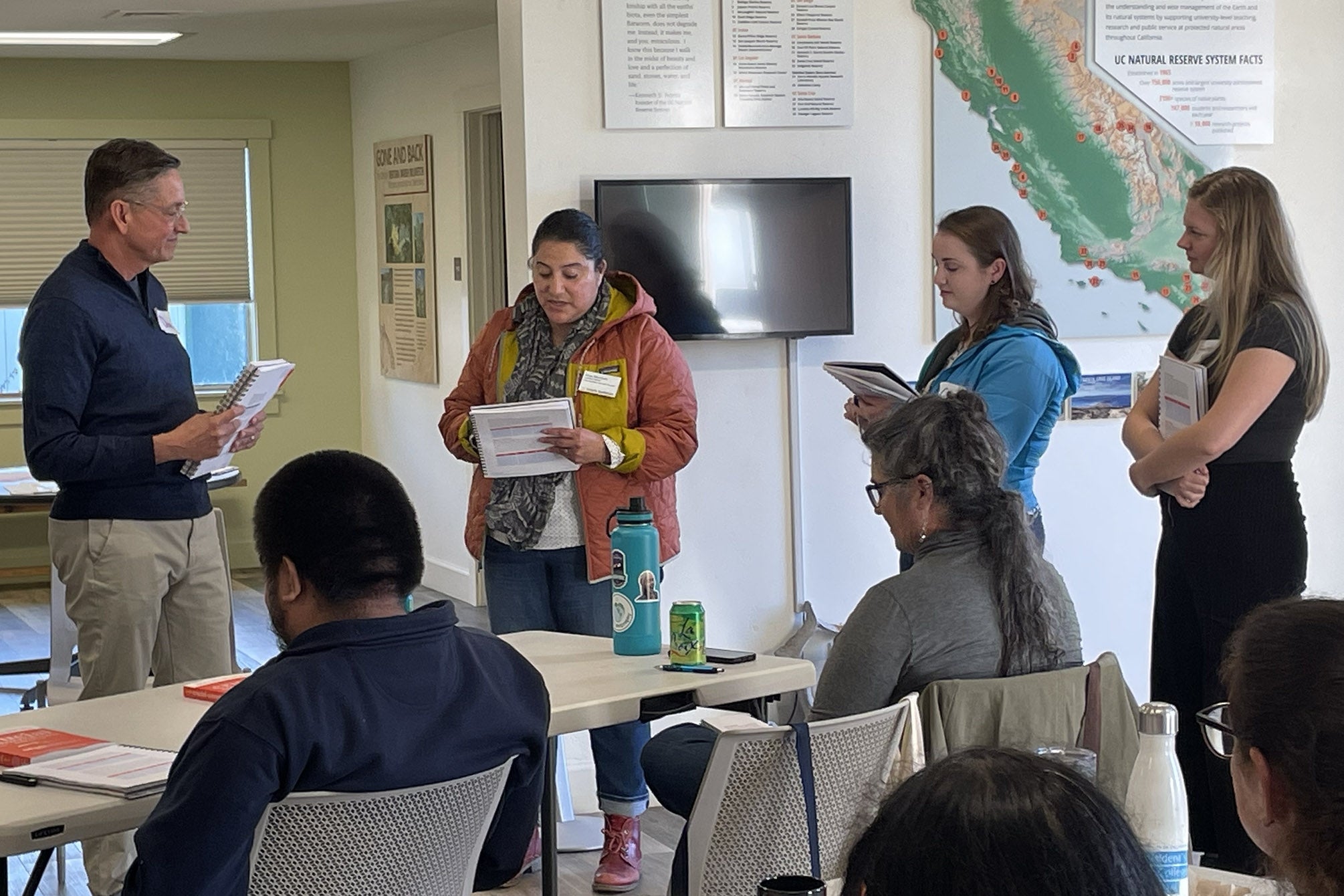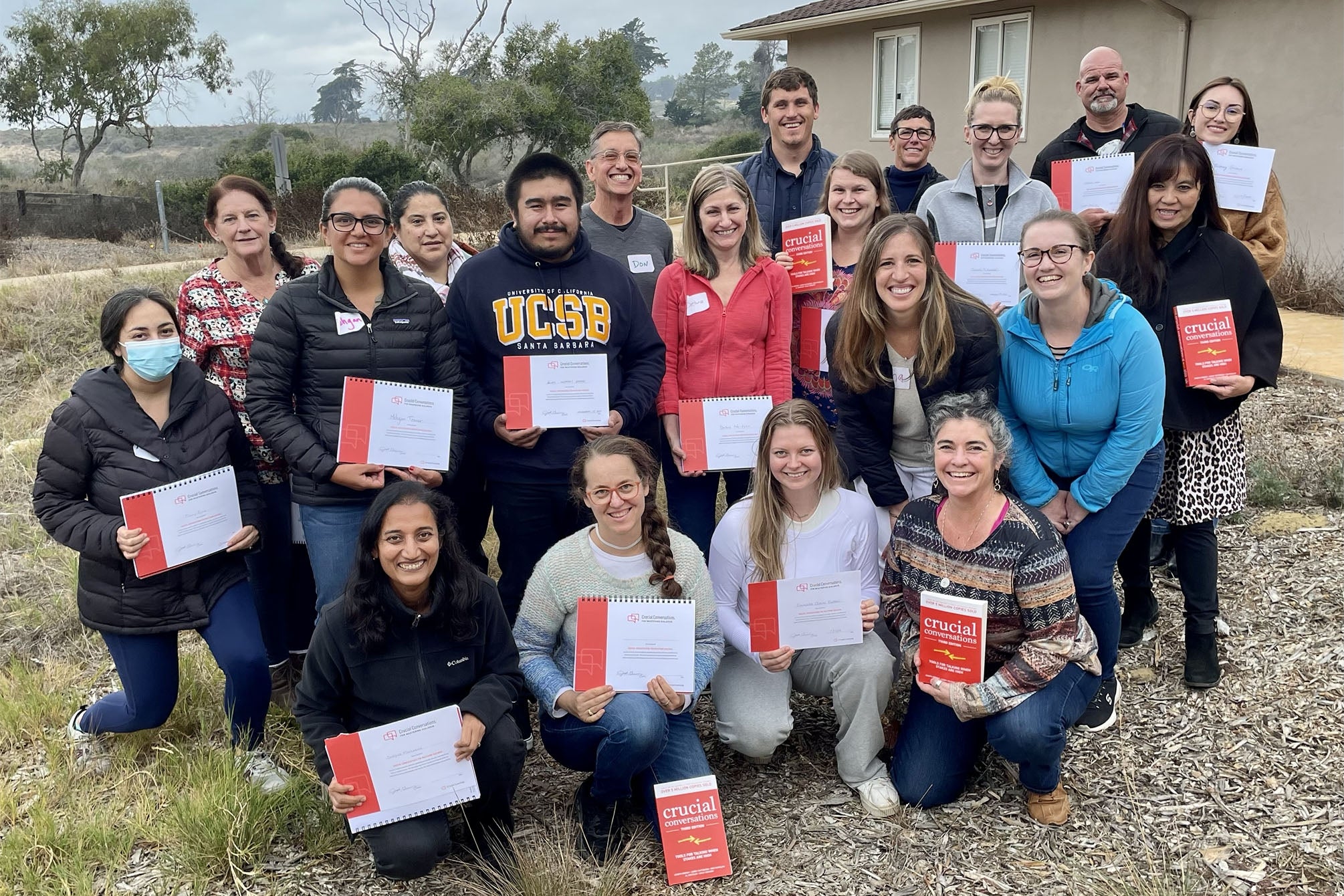
If you tend to clam up during a difficult conversation – either at work or in your personal life – you are not alone. Conversely, if you’re the type who resorts to verbal aggression under pressure, you’re also in good company.
It turns out that most people are not very good at the mechanics of having an effective, challenging conversation. And often, said Associate University Ombuds Don Lubach, when we’re unable to talk things out successfully, we tend to act them out, a source of problems with our co-workers or partners.
A rhetoric major at UCSB, former faculty member and career coach at the university, Lubach now does his communications coaching through the Office of the Ombuds, a neutral space for anyone in the university community to resolve a dispute. “Our work," said Lubach, “centers on awkwardness and difficult conversations.”
For those not in need of an immediate appointment but looking to sharpen communication skills, the ombuds office offers a two-day, offsite course entitled “Crucial Conversations for Mastering Dialogue©,” usually about three times a year. Lubach is a certified trainer in the curriculum, and has taught it seven times previously.
Most recently, on two successive days in late November, a group of 18 staffers with varying roles across campus gathered at Coal Oil Point Reserve’s Nature Center to dig into the “Crucial Conversations” coursework. Participants were instructed to come prepared with a crucial conversation they’re currently wrestling with, and were assigned a “conversation partner” so that they could apply the skills they were learning in real time.
“Opposing opinions, strong emotions and high stakes” are the key ingredients to a crucial conversation, Lubach told the group, who were dressed comfortably for the sessions and spread out at tables in the Nature Center’s airy and sunlit central room, with ample snacks and beverages close at hand.

Supported by a text and workbook, much of the coursework relies heavily on video content featuring actors engaging in mock workplace situations heavy on misunderstanding and conflict. In between videos the participants dissected the points of failure, while Lubach and his associate Lana Smith-Hale added anecdotes and insights as they engaged with the teams of conversation partners.
For attendee Swapna Madineni this practice work was the most compelling part of the training. The director of finance for the Department of Molecular, Cellular and Developmental Biology, Madineni pointed out that “if it’s a course teaching you what to do by telling, you just listen. But here they made us work on it—and that helped me a lot.”
Lubach explained that inference is a key culprit in conversations that go wrong. “We tend to overlook facts and knit stories, sometimes false ones that can trigger emotions.” Heading into an important conversation with inferred information and a lot of emotion, Lubach continued, won’t typically lead to progress.
Instead, he shared, one needs to balance advocacy for your own position with facts, and inquiry about theirs. “Be confident enough to share your story, and humble enough to hear theirs.”
By day two, the group relaxed, and some of the quieter participants spoke more freely. Lubach peppered his teaching with some examples of difficult conversations at UCSB, minus the players’ names.

Part of it comes down to biology – the fight or flight response applies to difficult conversations, the participants learned. But these instincts can be overcome and dialogue skills can be learned and should be practiced, said Lubach.
Even coming to a favorable resolution doesn't mean a conversation is finished. Following up and building on progress is just as important. In that spirit, even while issuing each participant a diploma, Lubach assigned homework.
“Before you leave, set a date to call your conversation partner so you can exchange information with them. Keep the conversation going,” Lubach instructed.
After receiving his diploma, participant Alan Mojarro Franco said that he wished he had taken the course before starting his role as a business officer in the Department of Chicana and Chicano Studies. “I’m learning that the conversations are not one-sided—it takes commitment by both sides to make a crucial conversation. The do’s and don’ts they taught us here are really important,” he added.
And Robin Johnson, an academic advisor in the College of Letter and Sciences, contrasted the Crucial Conversations training with many others she’s attended in her 23 years at UCSB. “There was not one moment that I felt bored. I think this really relates to my job and my life and I think it’s going to make a profound difference.”
Learn more about the Office of Ombuds or about the next Crucial Conversations course dates here. The departments sponsoring each attendee typically cover the cost of the training.
Sarah Kidwell
sarahkidwell@ucsb.edu



